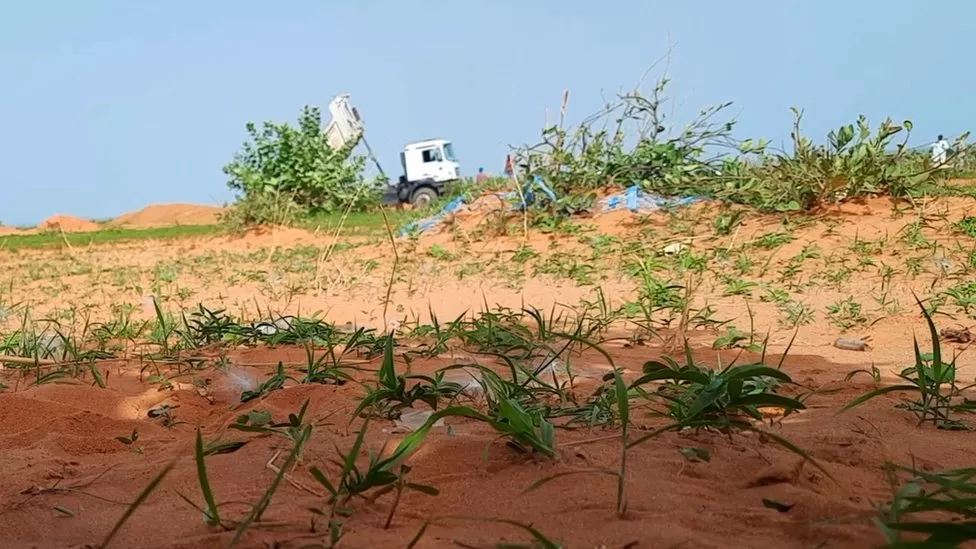MAALIM is traumatised by what he saw in Sudan’s western region of Darfur, before he fled across the border to Chad.
“If the people who I worked with know I have shown you these photos and videos, or even that I filmed them, I am a dead man,” he tells me as he whips out his phone to show me harrowing pictures of scattered corpses in the city of El Geneina. We have changed his name for his own safety.
Before leaving the country, he was part of a group of people tasked with removing corpses from the streets and burying them in mass graves.
Sudan has been rocked by fierce battles between the paramilitary Rapid Support Forces (RSF) and the army since April, with some of the worst fighting in Darfur, where the RSF originates.
The photos showed dozens of dead bodies, some of them covered with blankets and clothing, others swollen and already rotting. Maalim also showed photos of aid agency compounds, which were wrecked and looted.
“I felt terrible. I felt like they died while in a state of fear and terror. Many of them had been lying dead on the streets for more than a week,” he tells us, visibly distressed.
Perhaps the most disturbing footage he showed us was a video he took while hiding in a bush. It showed bodies being dumped from a lorry into a mass grave.
“We went towards the forest graveyard to bury the bodies. But the RSF did not allow us to do so. Under the orders of the RSF, the driver of the truck was ordered to dump the bodies in a pit,” Maalim says, adding that the RSF ordered them to leave the area afterwards.
“They should have been buried according to Muslim rituals. We should have held prayers for them. But the RSF insisted that they were discarded like garbage.”
Nobody knows who the bodies belong to or how they were killed. But many families who have sought refuge in Chad tell us the RSF were specifically targeting young men and boys in West Darfur, forcing them out of their hideouts and killing them.
The families say members of non-Arab communities were targeted. They describe being stopped at RSF checkpoints and asked about their ethnicity. They told us they were too frightened to say they were Masalit in case they were killed.
The BBC has asked the RSF to comment on the allegations but it has not responded. But earlier this week it denied allegations it was involved in similar attacks on members of the Masalit community in May.
Maalim’s account matches details in a UN report published on 13 July, saying local people were forced to dispose of the bodies of at least 87 ethnic Masalit and others allegedly killed by the RSF in a mass grave in West Darfur.







